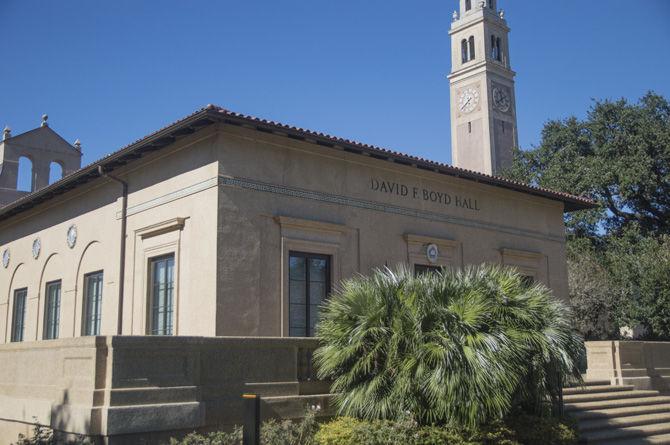In Pres. William Tate IV’s first report to the university on Aug. 6, he singled out graduate education as one of the core priorities of his tenure.
“You can’t recruit PhD students if they don’t have a floor in their stipends that actually allows them to live. It’s simply untenable and… unethical to recruit students in PhD education if you don’t provide those [benefits],” he said.
The focus is not surprising considering that Tate formerly served as a graduate school dean at the prestigious Washington University in St. Louis, Missouri.
I talked with Dean James Spencer, head of the LSU Graduate School, to get a better sense of the current condition of graduate education here at the university. The outlook seems to be a lot more complicated than many have made it out to be.
According to Spencer, the graduate school has historically been focused on “pushing paper” rather than “benchmarking the quality of the education on campus.” Under Spencer’s leadership, the school has entered a strategic planning process to examine its role in the academic journey of students and analyze how to better allocate resources, particularly graduate assistantships and the valuable stipends that come along with them. There are over 1,800 such assistantships on campus.
Graduate students across the university have been urging the administration to increase the minimum stipends allowed. In a 2020 interview with The Reveille, a graduate student pointed out: “What we get paid is barely above the poverty line.” Spencer says he is “very sympathetic” to graduate students in need, however he notes that “it’s not ‘we need higher stipends,’ but ‘where do we need higher stipends.'”
Spencer says that the university is “slightly over-investing the norm” with its $50 million total spending on assistantships and tuition waivers. Individual colleges have the final say over the amount they provide their graduate students, with some STEM fields allocating dramatically more than the minimum required stipend of $10,800 per year.
“We need to set benchmarks,” Spencer said. “We don’t need to up the stipends to the level of Yale. It would kill us if we did that. We don’t need to keep them at the levels of Montana State either. We need to decipher what is the pool that we are swimming in, and benchmark ourselves on the stipend that works for that.”
Stipends are only one part of the problem facing our university’s graduate population. The United Campus Workers of Louisiana—the union representing graduate students—released a petition last year urging the university administration to provide more comprehensive and affordable health insurance, which can amount to one-third of a graduate assistant’s monthly pay.
This health insurance cost is unavoidable for those graduate students who are required to maintain it as a condition staying in the country. It is an added cost on top of fees that are already among the “highest in the nation,” according to a 2019 Reveille report.
Adam Dohrenwend, a doctorate geography student, shared with me some of the day-to-day concerns of graduate assistants.
While he concedes that some improvements have been made recently, the university needs to “seriously consider what it means for exceptionally talented graduate students to live paycheck to paycheck and meal to meal.”
What impact does this financial stress have on research output? What impact does it have on teaching quality?
As Tate made clear, the university’s current pact with graduates is “unethical” and far from what should be allowed at a flagship university. I applaud him for bringing the issues facing graduate students to the forefront of attention and for committing to change.
With the graduate school adopting a new strategic vision, all of the pieces for success are in place. I’m confident change will come.
Charlie Stephens is a 20-year-old political communications junior from Baton Rouge.
Editor’s Note: A previous version of this article listed the minimum stipend at $10,800 per semester; this sum is actually the annual stipend minimum.
Opinion: The state of graduate education at the university is dismal
October 6, 2021
David F. Boyd Hall houses the LSU Graduate School on Nov. 21, 2016, at 114 West David Boyd Hall.
More to Discover






